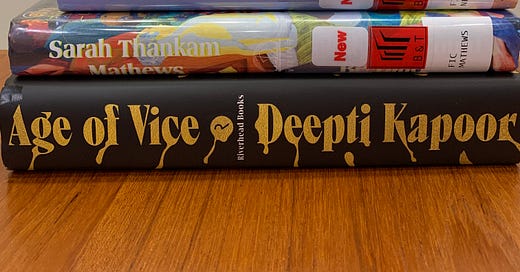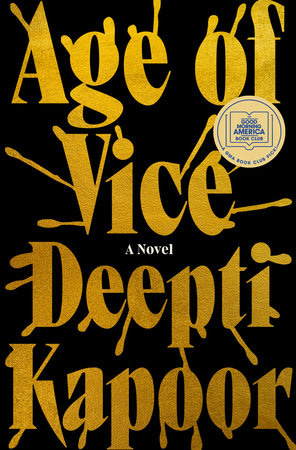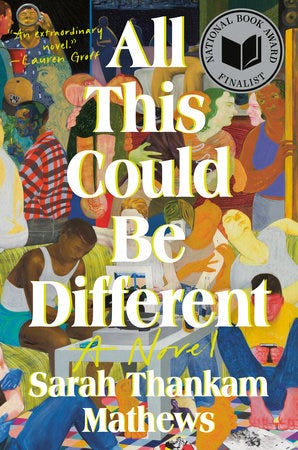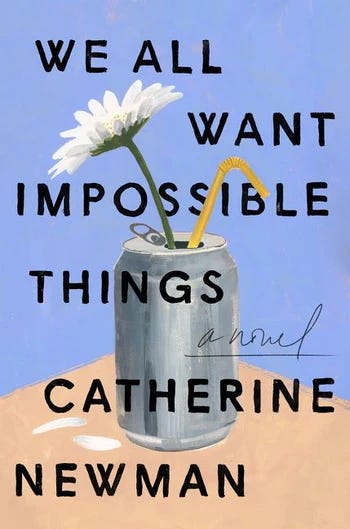Age of Vice, by Deepti Kapoor
This is a big book, both in length and ambition. It’s a sprawling story about an Indian crime family and the people who are sucked into its orbit and then corrupted — or worse. It begins in 2004, when a car jumps a curb, killing five people. A servant, Ajay, takes responsibility for the crime. But he’s a “Wadia man,” bound to the powerful family by years of service, and it becomes clear his harrowing prison sentence is only his latest, and most extreme, duty. The story flashes back to 1991, when Ajay is 8 and living in extreme rural poverty. His mother sells him to settle a debt, and as he works his way through his childhood and teens, he eventually meets and becomes useful to Sunny Wadia, son of crime family boss Bunty. Sunny is living a hedonistic life even as he harbors idealistic dreams about developing the riverside to make Delhi’s Yamuna as appealing as London’s Thames. He meets journalist Neda, who is sniffing around the Wadia family for a story but it simultaneously fascinated by Sunny. Hers is one of the perspectives we get as the book progresses, as well as that of an assassin who seems poised to strike by the end. The action makes the pages fly by, though if you are expecting a clean ending, you won’t get it. (It’s the first of a planned trilogy, and there are a lot of threads left hanging to be dealt with in subsequent books.) If you can picture all the action on a screen, you’re not alone; the TV rights were the subject of a bidding war way back in 2019.
All This Could Be Different, by Sarah Thankam Mathews
Sneha has graduated college into an early 2010s job market still reeling from the Great Recession. She’s hungry for a job — hopefully one with some hope of a future green card sponsorship, since her parents have returned to India under unpleasant circumstances — when she gets an offer to be a contract consultant for a slightly sketchy firm, working on change management for a Fortune 500 client. The job pays relatively well, especially for Milwaukee, and comes with a rent-free apartment (albeit with a terrible downstairs neighbor/property manager — I’d pay to see a horror movie with her as the villain), and she’s even able to get her college friend Thom hired, too. Sneha is happy to be able to save money, to treat her new friend Tig to dinner, even if the job itself is confining: “I did not consider myself a sellout. What I felt was that I had been saved from drowning.” Her struggles — to figure out her professional life, to make and maintain true friendships, to find love as a queer woman of color, to let her family know who she really is, to deal with childhood trauma— will resonate with anyone who graduates from college and finds that dorm life is far more straightforward than the first plunge into adulting. This beautifully written book was a National Book Awards Finalist.
We All Want Impossible Things, by Catherine Newman
Ash, whose childhood best friend Edi is dying from ovarian cancer, can’t help but wish for the last-minute plot twist she knows isn’t coming. Edi is in a nearby Western Massachusetts hospice; her husband and 7-year-old son are back in New York (there was no room at the hospices there when the cancer hospital kicked her out). Ash visits daily, bringing Edi small treats like “watermelon, Italian ice, good chocolate with sea salt, lip balm,” and settling into the rhythms of the Graceful Shepherd Hospice, where one patient blasts Fiddler on the Roof at least once a day, the staff physician is nicknamed Dr. Soprano because of his resemblance to James Gandolfini, and a 20-year-old music therapist named Cedar plays patient requests on his guitar. When a loved one is dying, time doesn’t stop; our own lives keep bumping along, mundanely and sometimes ridiculously, even as our person faces the end of their very existence. For Ash, that means dealing with her husband, whom she has recently left, her younger daughter, who is skipping school, and her sex life, which ropes in a not-insignificant percentage of the book’s named characters. She is flawed and sharp and funny and observant about what is happening to her beloved Edi and to everyone who adores her. “It’s occurring to me only now that the dying and the loss are actually two different burdens, and each must be borne, individually, one after the other,” Ash thinks. This one will make you want to to call your best friend and tell them how much you love them.





